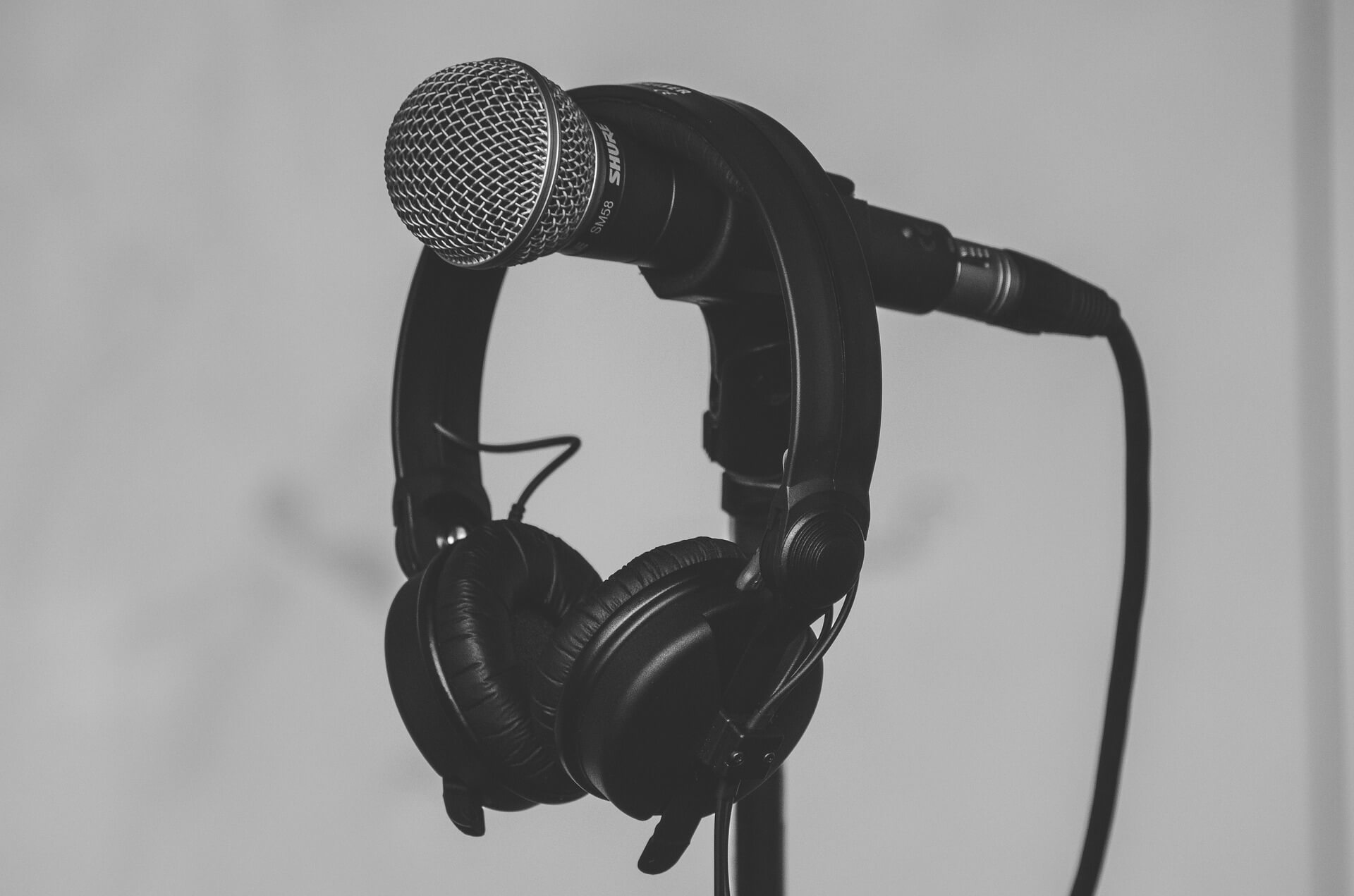Music journalist Sharona Lin on how to conduct an interview like it's your thousandth.
The very first interview I ever landed was with Silversun Pickups. I still remember how nervous I was – I was 18 and had just started writing for Tone Deaf when the opportunity popped into my inbox. I grabbed it, but then I started panicking. What if they hated me? What if I ran out of questions? What if I was actually terrible at music journalism?
Luckily, a mentor gave me some great advice on interviewing, and I survived. In the seven years since then, I’ve interviewed all kinds of creatives, from Mallrat to Rick Astley, over the phone, Skype, email and in person. Here’s what I’ve learned.

GIF description: Rick Astley dancing in front of a chain-link fence
Before the interview
It sounds obvious but to write a good interview, you need to know about the person you’re interviewing – and not just the things that are on the press release their publicist sent through (although that’s a good start). Generic questions rarely make good interviews.
Here are a few questions I promise people are tired of answering:
1. How did you come up with your band name?
2. How do you write your music?
3. What is it like being a female musician/artist/comedian?
So how do you write questions worth asking?
Firstly, listen/watch/read as much of their music/films/books as possible, so you can actually develop insightful questions based on their work. At the very least, it’s respectful – if you’re interviewing someone, you should understand their work, their influences, and have some kind of opinion on their latest work.
Secondly, read as much about them as possible. Other interviews are a good starting point – if you dig up something interesting, you can ask them to expand on it. Alternatively, if everyone’s been asking them the exact same question and you see them give the exact same answer each time, you can avoid that question. Social media is also valuable. For one interview, I read through almost two years’ worth of tweets. Sometimes it’s a waste, but other times, you’ll find some great interview fodder.
Finally, when writing your questions, remember your job is to coax interesting words out of people. Framing your questions right is a good way to help that along – ask ‘how’ and ‘why’ questions and as a general rule, avoid ‘yes’/’no’ questions unless they lead in to bigger and more expansive questions.
During the interview
As for the interview itself: as a music or arts writer, you’re most likely to interview an artist on the phone (known as a phoner) as they’re usually on the road, or they’re doing press far in advance and aren’t in town. Occasionally you’ll speak to someone on Skype or in person.
Whatever the medium, you need some way to record the conversation. It doesn’t matter how insightful and amazing the interview was if you didn’t hit the record button. (I know a music journo who once interviewed The Temper Trap in person only to realise in the lift that he hadn’t recorded the chat – he spent a feverish hour trying to scribble down as much as he could remember and fudged the eventual story. It happens.)
For legal reasons, most phones don’t let you record calls, so the easiest way to record a phoner is simply to use speakerphone and record your conversation with another device. If you’re paranoid, record on two devices.
When you’re interviewing, be professional, friendly, and open. Some artists will be amazing and spin you eloquent, dazzling sentences of gold. Others might be in a bad mood, or tired, or just not click with you. Don’t stress if it’s the latter – just keep asking them questions until something shakes out.
Most importantly, listen. There’s nothing wrong with throwing out your prepared questions and chasing an interesting thread. You want to have a conversation, not a Q&A.

Image description: A microphone and headphones
After the interview
After doing in-depth research, crafting insightful questions and having a delightful conversation with a fascinating artist, it’s time to write the interview itself. After many years of painstakingly typing out full interviews, here’s what I’ve learned.
Firstly, unless you have the cash to blow on a transcribing service, you’ll probably spend a couple of hours transcribing your interview. But you do not have to transcribe word for word into a Word document. There are apps that are made for exactly this task! Import your audio into a transcribing app and transcribe away with (relative) ease. Try oTranscribe or Express Scribe.
Secondly, transcribing the entire interview is for suckers. I used to do this, capturing every ‘um’, misspoken word, and repetition. I type pretty quickly, but it’s still time-consuming.
Now, during the interview, I take brief notes alongside timestamps. As soon as the interview is done, I start building my piece around these notes, listening to the full interview to add in anything I missed. When I transcribe, I can skip to the relevant timestamps and only transcribe what I need. I estimate this has cut down on the time from interview to final product by at least 50% – time I can spend researching the next interview.
All this said, everyone approaches interviews differently. As long as you prepare well and hit record, you’ll be fine.
 Building Blocs
Building Blocs





